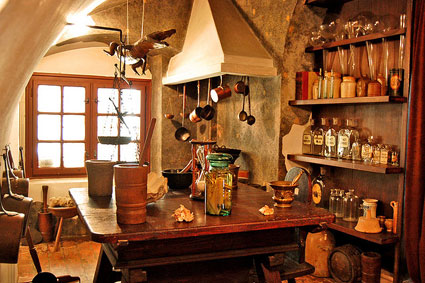
I’ve mentioned a snippet of this before in a couple other posts on magic, but I absolutely love this passage on the similarity of magic and science, as far as man and his motivations is concerned.
I have described as a `magician’s bargain’ that process whereby man surrenders object after object, and finally himself, to Nature in return for power. And I meant what I said. The fact that the scientist has succeeded where the magician failed has put such a wide contrast between them in popular thought that the real story of the birth of Science is misunderstood.
You will even find people who write about the sixteenth century as if Magic were a medieval survival and Science the new thing that came in to sweep it away. Those who have studied the period know better. There was very little magic in the Middle Ages: the sixteenth and seventeenth centuries are the high noon of magic. The serious magical endeavour and the serious scientific endeavour are twins: one was sickly and died, the other strong and throve. But they were twins. They were born of the same impulse. I allow that some (certainly not all) of the early scientists were actuated by a pure love of knowledge. But if we consider the temper of that age as a whole we can discern the impulse of which I speak.
There is something which unites magic and applied science while separating both from the wisdom of earlier ages. For the wise men of old the cardinal problem had been how to conform the soul to reality, and the solution had been knowledge, self-discipline, and virtue. For magic and applied science alike the problem is how to subdue reality to the wishes of men: the solution is a technique; and both, in the practice of this technique, are ready to do things hitherto regarded as disgusting and impious—such as digging up and mutilating the dead.
If we compare the chief trumpeter of the new era (Bacon) with Marlowe’s Faustus, the similarity is striking. You will read in some critics that Faustus has a thirst for knowledge. In reality, he hardly mentions it. It is not truth he wants from the devils, but gold and guns and girls. `All things that move between the quiet poles shall be at his command’ and `a sound magician is a mighty god’.3 In the same spirit Bacon condemns those who value knowledge as an end in itself: this, for him, is to use as a mistress for pleasure what ought to be a spouse for fruit.4 The true object is to extend Man’s power to the performance of all things possible. He [the scientist] rejects magic because it does not work;5 but his goal is that of the magician.
-C.S. Lewis, The Abolition of Man, p.86
